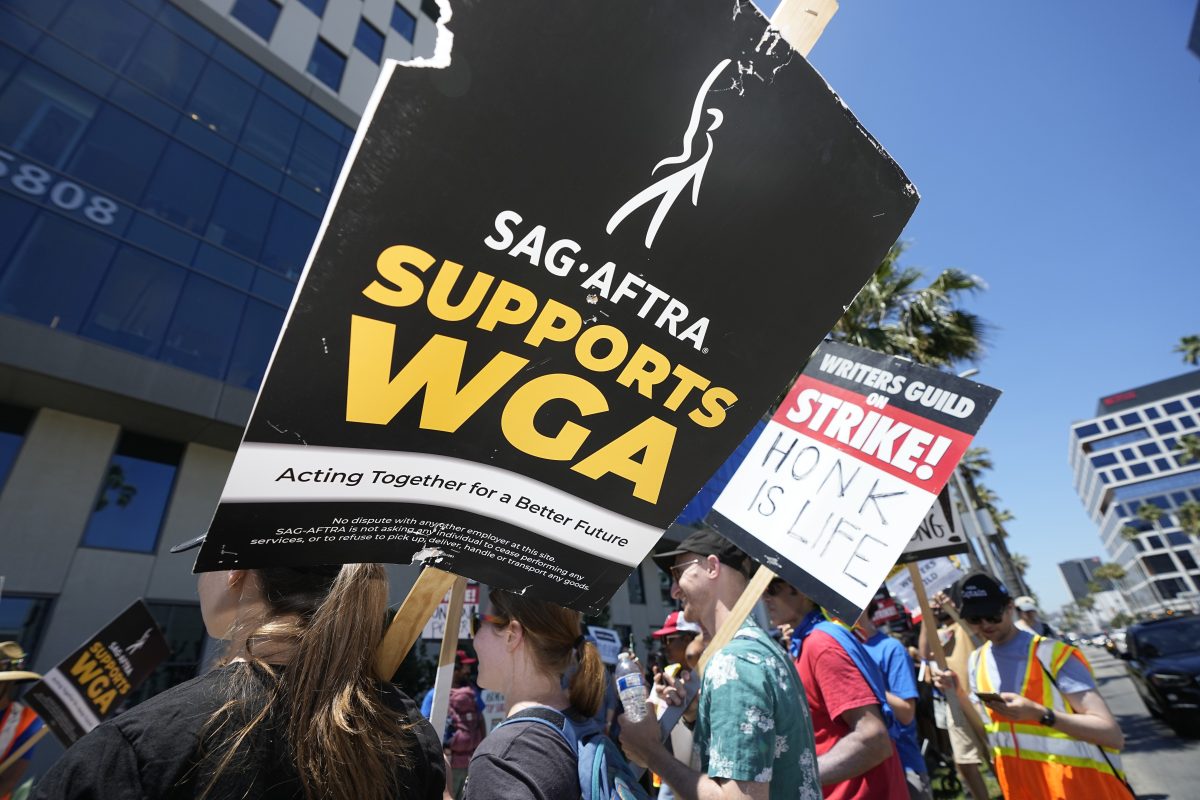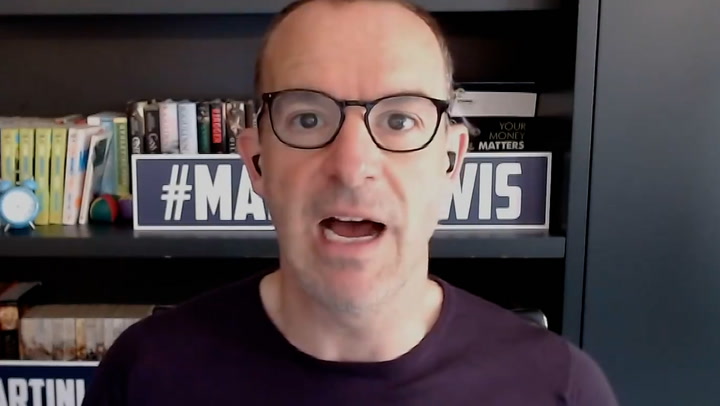Hollywood Shut Down: Writers And Actors On Strike – What It Means For The Industry

Table of Contents
The Core Issues Fueling the Hollywood Strike
The Hollywood strike is not a single issue but a confluence of long-standing concerns that have reached a boiling point. The WGA and SAG-AFTRA strikes represent a fight for fair compensation, protection against the rise of AI, and improved working conditions.
Fair Compensation and Residuals in the Streaming Era
The shift from traditional media to streaming has fundamentally altered the compensation models for writers and actors. While streaming services like Netflix, Disney+, and HBO Max boast billions of subscribers and generate immense profits, the compensation structure for creatives hasn't kept pace. The lucrative DVD and Blu-ray sales that once provided substantial residuals are largely a thing of the past. Streaming services often offer a flat fee, regardless of viewership numbers, leaving writers and actors with significantly less than they would have received under the traditional model.
- Decline in DVD sales: The decline of physical media sales has drastically reduced residual income for writers and actors.
- Increased streaming viewership: Streaming platforms enjoy massive viewership, yet compensation models often fail to reflect this success.
- Lack of transparency in streaming revenue: The opaque nature of streaming revenue makes it difficult for creatives to understand how their work contributes to the platform's profits.
This disparity between the immense profits of streaming giants and the often meager compensation of the individuals who create their content is a central driver of the Hollywood strike.
The Rise of Artificial Intelligence (AI) and its Threat to Creatives
The rapid advancement of artificial intelligence poses a significant threat to the livelihoods of writers and actors. Concerns center around the use of AI to generate scripts, create digital likenesses, and potentially replace human creatives altogether. The unions are demanding safeguards to prevent the exploitation of AI and ensure that human creativity remains central to the entertainment industry.
- AI-generated scripts: The potential for AI to write scripts raises concerns about job displacement and the devaluation of human creativity.
- Deepfake technology: The use of deepfake technology to create digital likenesses of actors without their consent or compensation is another major concern.
- Job displacement concerns: The automation of creative tasks threatens the employment and livelihoods of writers and actors.
- Lack of creative control: The use of AI in creative processes raises concerns about the loss of creative control for writers and actors.
Working Conditions and Health & Safety Concerns
The entertainment industry is notorious for its demanding schedules and sometimes unsafe working conditions. Both writers and actors frequently face long hours, inadequate breaks, and pressure to work even when ill. The unions are demanding improvements in these areas, prioritizing the health and well-being of their members.
- Excessive work hours: Long working hours and inadequate rest periods are commonplace in the industry.
- Lack of adequate rest: Insufficient time off contributes to burnout and negatively impacts the health of creative professionals.
- Unsafe set conditions: Accidents and injuries on film sets are a recurring concern, highlighting the need for better safety protocols.
- Pressure to work while ill: The pressure to maintain tight production schedules often leads to individuals working while unwell, potentially spreading illness and compromising safety.
The Impact of the Hollywood Shutdown
The Hollywood strike's consequences extend far beyond the picket lines, creating a ripple effect across the entire entertainment industry and beyond.
Economic Fallout on Hollywood and Related Industries
The Hollywood shutdown is costing billions of dollars. Production companies are losing revenue, studios are delaying releases, and countless individuals employed in supporting industries – from catering and transportation to post-production – are facing job losses. The impact on local economies, particularly in Los Angeles and New York, is substantial.
- Loss of revenue for studios: Delayed film and TV productions translate into significant revenue losses for major studios.
- Job losses in supporting industries: Thousands of workers in related industries are affected by the production standstill.
- Impact on local economies: The strike has a considerable impact on the economies of cities that rely heavily on the entertainment industry.
Delayed Film and Television Releases
The strike has already resulted in numerous delays for both film and television projects. Movie premieres are being pushed back, and television series are facing production halts. This disruption affects not only the industry but also the consumers who eagerly anticipate these releases.
- Postponed film releases: Major studio films are being delayed, impacting box office revenue and release schedules.
- Delayed TV series premieres: Television series are facing production delays, pushing back premiere dates and disrupting streaming calendars.
- Impact on box office revenue: The postponement of films will undoubtedly impact box office revenue for the remainder of the year.
- Disruption to streaming calendars: Streaming platforms are also experiencing delays in content releases.
The Shift in Public Opinion and Media Coverage
Public opinion regarding the strike has evolved. Initially, some may have viewed the strike negatively, focusing on the inconvenience of delayed entertainment. However, as the reasons behind the strike become clearer, public sympathy for the writers and actors is growing, reflected in increased social media engagement and changing media narratives.
- Social media engagement: Social media platforms have become important battlegrounds in shaping public perception.
- News coverage analysis: News coverage has shifted, providing more balanced perspectives and highlighting the core issues.
- Impact on public sympathy: Public support for the striking unions is steadily increasing.
- Changing narrative: The narrative surrounding the strike is shifting from mere inconvenience to a fight for fair labor practices.
Conclusion
The Hollywood strike, resulting from the combined actions of the WGA and SAG-AFTRA, represents a critical turning point for the entertainment industry. The core issues of fair compensation in the streaming era, the threat of AI, and the need for improved working conditions are undeniably crucial. The economic fallout and delays are significant, but the long-term consequences remain uncertain. This Hollywood strike underscores the need for a systemic overhaul to protect the rights and livelihoods of those who create the entertainment we consume. Staying informed about the ongoing negotiations and the progress of the Hollywood strike is crucial. The future of entertainment hinges on a resolution that ensures a fair and sustainable future for all involved in its creation. Let's continue to monitor the developments in this crucial moment for the future of the entertainment industry and advocate for a just resolution to the Hollywood strike.

Featured Posts
-
 Urgent Hmrc Child Benefit Update Important Messages To Act On
May 20, 2025
Urgent Hmrc Child Benefit Update Important Messages To Act On
May 20, 2025 -
 Talisca Tadic Fenerbahce De Transfer Ve Saha Ici Gerilimi
May 20, 2025
Talisca Tadic Fenerbahce De Transfer Ve Saha Ici Gerilimi
May 20, 2025 -
 Corruption Conviction Shakes Us Navy Four Star Admirals Case
May 20, 2025
Corruption Conviction Shakes Us Navy Four Star Admirals Case
May 20, 2025 -
 Animal Welfare Officials Remove 49 Dogs From Washington County Facility
May 20, 2025
Animal Welfare Officials Remove 49 Dogs From Washington County Facility
May 20, 2025 -
 U Dzhennifer Lourens Rodilsya Vtoroy Rebenok Podrobnosti
May 20, 2025
U Dzhennifer Lourens Rodilsya Vtoroy Rebenok Podrobnosti
May 20, 2025
